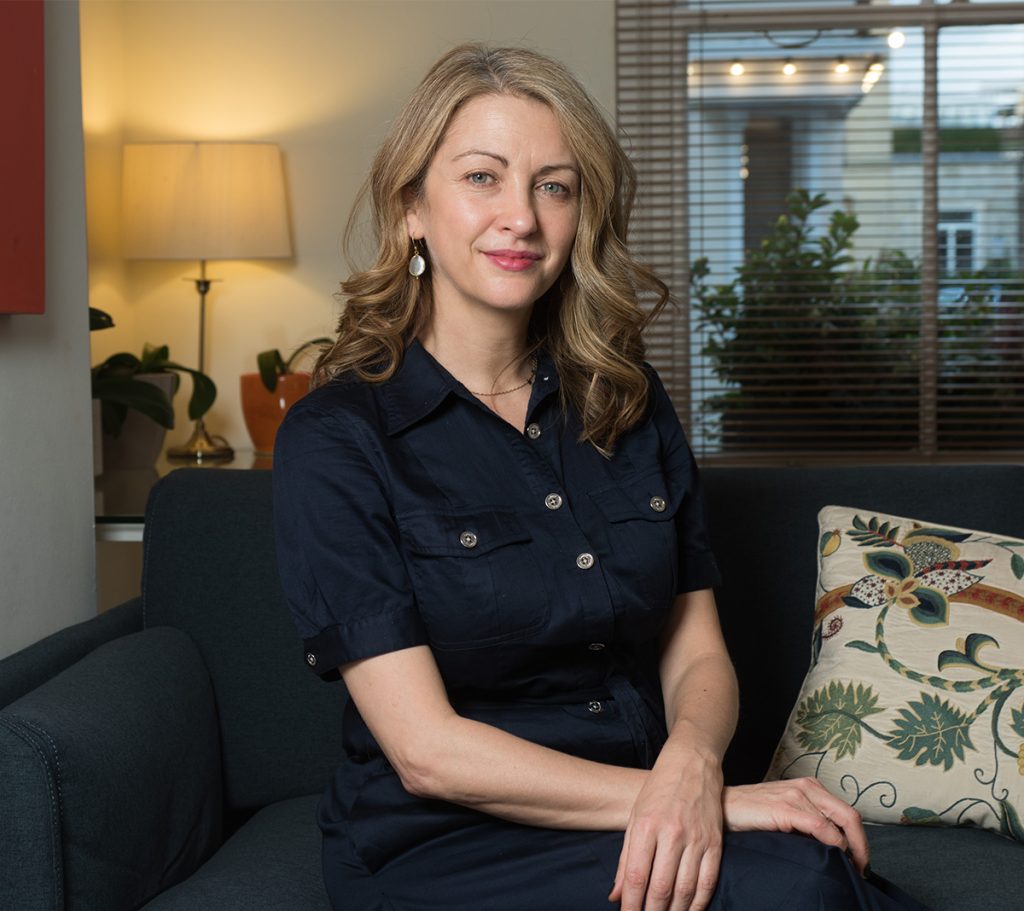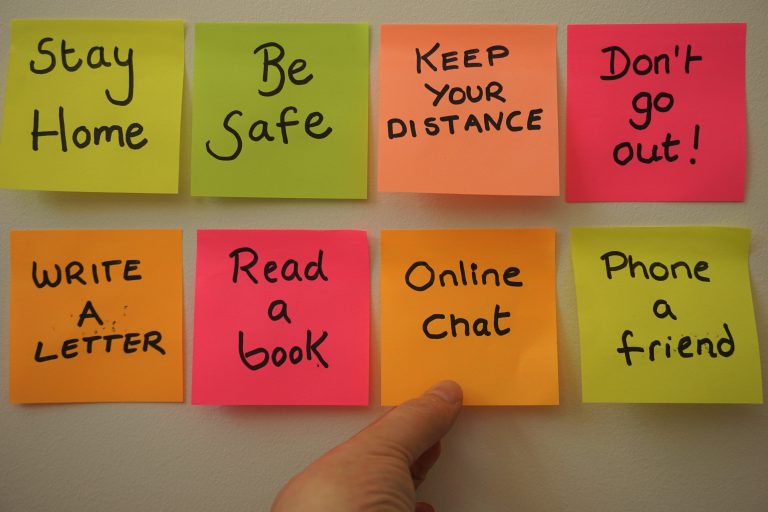Michelle shares her step-by-step guide to calming the inner critic.
The strain may be showing with our significant others on lockdown even to the point of danger if the relationship is abusive. But what if that terrible relationship is with oneself? What if we feel trapped with the last person on earth with whom we want to spend so much alone time?
For many this is a reality and in isolation what was a quietly nagging inner voice has become an inescapable, loud and harsh critic telling us, “ Don’t bother anyone with your boring phone calls”, “You look too fat for that dress”, “You are so lazy not to go out to exercise every day”, “This work you are producing is terrible you are bound to lose your job”.
It is natural for us to have an inner voice that guides us, we might call it our conscience which tells us right from wrong or our instincts which warn us of danger. For the most part we are likely to be grateful for its presence.

So why might our helpful mentor become cruel and attack our every move?
As with most maladaptive behaviours the roots tend to be in our early experiences. As a child without appropriate care we feel unsafe. A lack of attunement to and nurture of our emotions leaves us feeling overwhelmed and unvalidated.
The internal critic may be fuelled by external criticism and shame in our childhood when even those who may be well-intentioned can be insensitive to our needs. How many of us have been wounded by words such as “Don’t be so stupid”, “Stop being a baby”, “what’s wrong with you”, “you’d be so pretty if only you smiled”, “why can’t you be more like your brother”.
School life can compound this as with every achievement another goal is quickly set adding to the sense of never being good enough.
Left alone with all of this, little us feels lost and unsafe. We wonder what we did wrong.
Hence our critical voice develops as it begins to identify all our possible faults or mistakes so that we can correct or avoid them.

It is often the starting place for body dysmorphia, eating disorders, OCD and perfectionism as tangible means to strive for betterment and for depression or a dependency as we get swamped by the futility of the effort. Others may feel the shame but angrily reject it along with their need for care or love leading to cycles of rage and emptiness.
In the present day we may have worked our way through this complex emotional maze. We may have learned or are learning to nurture “little us” and to create fulfilling self validating lives with healthy relationships. But now separated from these in lockdown and living in a time of collective trauma we may once more feel lost and afraid so that the inner critic is awakened to save the day.
What can we do?
1) Get your bearings – if you get lost in the woods don’t keep wandering around aimlessly. Stop, Breathe and use grounding techniques.
2) Observe – identify when thinking gets hijacked by the inner critic. Can you spot the difference between helpful thoughts and critic led? Can you name the unhelpful behaviours the critic might be promoting?
3) Role with it – recognise the role of the self critical voice. You may know why it came into your life. Give it a character or a name so that you can be separate from it.
4) Move on – you don’t have to obey the voice. Thank it for its helpful suggestions and reassure it that you’ve got it from here.
5) It takes a village – activate the rest of your inner community. Find your wise voice, your compassionate voice, your rebel. Try a loving kindness meditation, look at photos of fun times, journal, engage in an activity that promotes your competence, write some positive self beliefs with evidence to turn to in these times.
6) Take opposite action – show yourself that the critic isn’t right by ignoring it’s orders. Connect to the outside world and tell trusted friends how you feel, wear the clothes you want, eat well, don’t do the harmful behaviour, let yourself be vulnerable.
7) Acceptance – This is a triggering time. It’s really normal that old feelings and beliefs are coming to the surface. Get support if you need it but also recognise that this is a result of external events and not forever.

Author: Michelle Scott
Psychotherapist & Eating Disorder Specialist MSc BSc RMHN (Reg MBACP) London & Edinburgh




